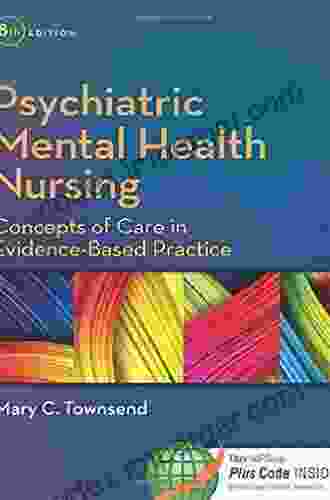Nine Side Effects Of Growing Up Fatherless And How To Overcome Them

Growing up without a father can have a profound and lasting impact on an individual's life. While the absence of a paternal figure can manifest in various ways, there are several common side effects that can significantly shape the emotional, psychological, and behavioral development of fatherless children.
This article delves into nine key side effects of growing up fatherless and provides insights into how to overcome these challenges to achieve healing and personal growth.
Fatherlessness often leads to feelings of emotional isolation and loneliness. Without a father to provide a sense of belonging and security, fatherless children may feel like they are missing an essential part of themselves. This isolation can manifest as difficulty forming close relationships, a sense of not belonging, and a longing for connection.
4.1 out of 5
| Language | : | English |
| File size | : | 2688 KB |
| Text-to-Speech | : | Enabled |
| Screen Reader | : | Supported |
| Enhanced typesetting | : | Enabled |
| Word Wise | : | Enabled |
| Print length | : | 139 pages |
| Lending | : | Enabled |
Overcoming Emotional Isolation:
- Build Strong Relationships: Nurture close relationships with friends, family members, or mentors who provide support and a sense of community.
- Join Support Groups: Connect with other individuals who have experienced similar challenges to foster a sense of understanding and belonging.
- Practice Self-Love and Acceptance: Recognize and appreciate your own worthiness and embrace your individuality, regardless of your family circumstances.
Growing up without a father can deprive individuals of positive role models and mentorship. Fathers play a crucial role in shaping children's values, beliefs, and aspirations. Their absence can create a void in guidance and support, leaving fatherless children feeling lost and unsure of their direction in life.
Overcoming Lack of Role Models:
- Seek Out Mentors: Identify individuals who can provide guidance, support, and advice in different areas of your life.
- Explore Positive Media and Literature: Books, movies, and articles can provide insights and inspiration from individuals facing similar challenges.
- Set Realistic Goals: Break down your aspirations into smaller steps and seek support along the way to maintain motivation and progress.
Fatherlessness can make it challenging for individuals to manage their emotions effectively. Without a father to offer guidance and support, fatherless children may struggle to identify, express, and cope with their emotions. This can lead to emotional instability, outbursts, or withdrawal.
Overcoming Difficulty Managing Emotions:
- Practice Mindfulness: Pay attention to your emotions without judgment to gain insights into their triggers and patterns.
- Develop a Healthy Outlet: Find constructive ways to express and release your emotions, such as journaling, art, or physical activity.
- Seek Professional Help: Consider therapy or counseling to explore underlying emotional issues and develop coping mechanisms.
The absence of a father can increase the likelihood of engaging in impulsive and risk-taking behaviors. Fatherless children may seek out dangerous activities or make poor decisions in an attempt to compensate for the lack of parental guidance and supervision.
Overcoming Impulsivity and Risk-Taking:
- Enhance Self-Control: Practice exercises that strengthen your ability to resist temptations and control impulses.
- Develop Healthy Coping Mechanisms: Identify healthy ways to manage stress, anxiety, or boredom, without resorting to risky behaviors.
- Build a Strong Support System: Surround yourself with individuals who can provide support and accountability.
Growing up without a father can undermine an individual's self-esteem and confidence. Fatherless children may struggle to develop a positive self-image due to a lack of validation and support from a parental figure. This low self-esteem can manifest in self-doubt, negative self-talk, and a fear of failure.
Overcoming Low Self-Esteem:
- Practice Self-Compassion: Treat yourself with kindness and understanding, regardless of your mistakes or shortcomings.
- Focus on Your Strengths: Identify and appreciate your unique qualities, skills, and accomplishments.
- Challenge Negative Thoughts: Dispute and replace negative self-talk with positive affirmations.
Fatherlessness can hinder an individual's ability to form healthy relationships. Without a father to model healthy romantic and interpersonal relationships, fatherless children may struggle to establish boundaries, communicate effectively, and trust others.
Overcoming Difficulty Forming Relationships:
- Observe Healthy Relationships: Pay attention to how healthy relationships function to gain insights into positive communication, trust, and conflict resolution.
- Practice Self-Awareness: Understand your own strengths and weaknesses in relationships to identify areas for improvement.
- Seek Professional Support: Consider therapy or counseling to explore underlying issues that may be affecting your relationship patterns.
Research has shown that growing up fatherless is associated with an increased risk of mental health issues. Fatherless children may be more susceptible to depression, anxiety, and substance abuse due to the lack of emotional support and guidance.
Overcoming Risk of Mental Health Issues:
- Prioritize Self-Care: Engage in activities that promote your mental well-being, such as exercise, meditation, or pursuing hobbies.
- Seek Professional Help: Don't hesitate to reach out for therapy or counseling if you are experiencing mental health challenges.
- Build a Strong Support System: Surround yourself with people who care about you and support your recovery journey.
Growing up without a father can create a void in an individual's identity development. Fatherless children may struggle to understand their place in the world and may feel a sense of incompleteness or confusion about their identity.
Overcoming Challenges with Identity:
- Explore Your Values and Beliefs: Identify your core values and beliefs to establish a sense of purpose and direction.
- Connect with Your Culture and Heritage: Explore your cultural and ethnic roots to gain a deeper understanding of your identity.
- Seek Inspiring Role Models: Identify individuals who inspire you and whose values and beliefs resonate with your own.
Statistics indicate that fatherless children are more likely to engage in criminal behavior. The absence of a father can create a void in discipline, guidance, and accountability, increasing the risk of delinquency and crime.
Overcoming Risk of Criminal Behavior:
- Establish Strong Relationships: Build positive connections with mentors, teachers, or community leaders who can provide support and guidance.
- Develop a Sense of Purpose: Identify your passions and aspirations to create a positive direction for your life.
- Seek Redemption and Support: If you have made mistakes, take responsibility for your actions and seek guidance to break the cycle of criminal behavior.
Overcoming the challenges associated with growing up fatherless requires resilience, determination, and a commitment to self-discovery. By understanding the potential side effects and utilizing the strategies outlined above, fatherless individuals can embark on a journey of healing, empowerment, and personal growth.
Remember, you are not defined by your circumstances. You have the strength within you to overcome these challenges and create a fulfilling and meaningful life. Embrace the support of others, seek professional help when needed, and never give up on yourself.
If you or someone you know is struggling with the effects of growing up fatherless, this article provides invaluable insights and strategies for healing and empowerment. By sharing this knowledge, we can break the cycle of fatherlessness and create a more supportive and nurturing society for all children.
4.1 out of 5
| Language | : | English |
| File size | : | 2688 KB |
| Text-to-Speech | : | Enabled |
| Screen Reader | : | Supported |
| Enhanced typesetting | : | Enabled |
| Word Wise | : | Enabled |
| Print length | : | 139 pages |
| Lending | : | Enabled |
Do you want to contribute by writing guest posts on this blog?
Please contact us and send us a resume of previous articles that you have written.
 Book
Book Novel
Novel Page
Page Chapter
Chapter Text
Text Story
Story Genre
Genre Reader
Reader Library
Library Paperback
Paperback E-book
E-book Magazine
Magazine Newspaper
Newspaper Paragraph
Paragraph Sentence
Sentence Bookmark
Bookmark Shelf
Shelf Glossary
Glossary Bibliography
Bibliography Foreword
Foreword Preface
Preface Synopsis
Synopsis Annotation
Annotation Footnote
Footnote Manuscript
Manuscript Scroll
Scroll Codex
Codex Tome
Tome Bestseller
Bestseller Classics
Classics Library card
Library card Narrative
Narrative Biography
Biography Autobiography
Autobiography Memoir
Memoir Reference
Reference Encyclopedia
Encyclopedia Bob Holmes
Bob Holmes C Sankaran
C Sankaran Bolin Kumar Konwar
Bolin Kumar Konwar Byron Babbish
Byron Babbish Brian Cohen
Brian Cohen Laurence D Houlgate
Laurence D Houlgate Bryan G Cook
Bryan G Cook Brian Sachetta
Brian Sachetta Brian Francis Culkin
Brian Francis Culkin Brian Solomon
Brian Solomon C J Benton
C J Benton C P Dadant
C P Dadant Brant Rosen
Brant Rosen Corey P Smith
Corey P Smith Keith S Delaplane
Keith S Delaplane Naima
Naima Mark Bannerman
Mark Bannerman Bryan W Van Norden
Bryan W Van Norden Frank Pobell
Frank Pobell Michael Wayne
Michael Wayne
Light bulbAdvertise smarter! Our strategic ad space ensures maximum exposure. Reserve your spot today!

 Christian CarterPsychiatric Mental Health Nursing: Empowering Evidence-Based Care for Mental...
Christian CarterPsychiatric Mental Health Nursing: Empowering Evidence-Based Care for Mental...
 Jerry WardUnveiling the Secrets of Information: Facts And Interpretation In The Age Of...
Jerry WardUnveiling the Secrets of Information: Facts And Interpretation In The Age Of... Winston HayesFollow ·13.3k
Winston HayesFollow ·13.3k Ken FollettFollow ·17.1k
Ken FollettFollow ·17.1k Tom HayesFollow ·14.3k
Tom HayesFollow ·14.3k Ernest ClineFollow ·15.3k
Ernest ClineFollow ·15.3k Everett BellFollow ·18k
Everett BellFollow ·18k Leslie CarterFollow ·14.3k
Leslie CarterFollow ·14.3k Timothy WardFollow ·8.9k
Timothy WardFollow ·8.9k Philip BellFollow ·4.2k
Philip BellFollow ·4.2k

 Gary Cox
Gary CoxUnlocking Meaning and Purpose in Life: An Exploration of...
In an increasingly...

 Eric Hayes
Eric HayesMemoirs of the Early Pioneer Settlers of Ohio Illustrated
A Window into the Lives of Courageous...

 J.R.R. Tolkien
J.R.R. TolkienThe Montgomerys and Their Descendants: A Saga of Courage,...
Prepare to be...

 Avery Simmons
Avery SimmonsThe Rifle Musket: The Dawn of Modern Infantry Warfare
: The rifle musket, a revolutionary...

 Jesse Bell
Jesse BellUnlock the Power of Excel with VBA and Macros: A...
Microsoft Excel is a powerful spreadsheet...
4.1 out of 5
| Language | : | English |
| File size | : | 2688 KB |
| Text-to-Speech | : | Enabled |
| Screen Reader | : | Supported |
| Enhanced typesetting | : | Enabled |
| Word Wise | : | Enabled |
| Print length | : | 139 pages |
| Lending | : | Enabled |










